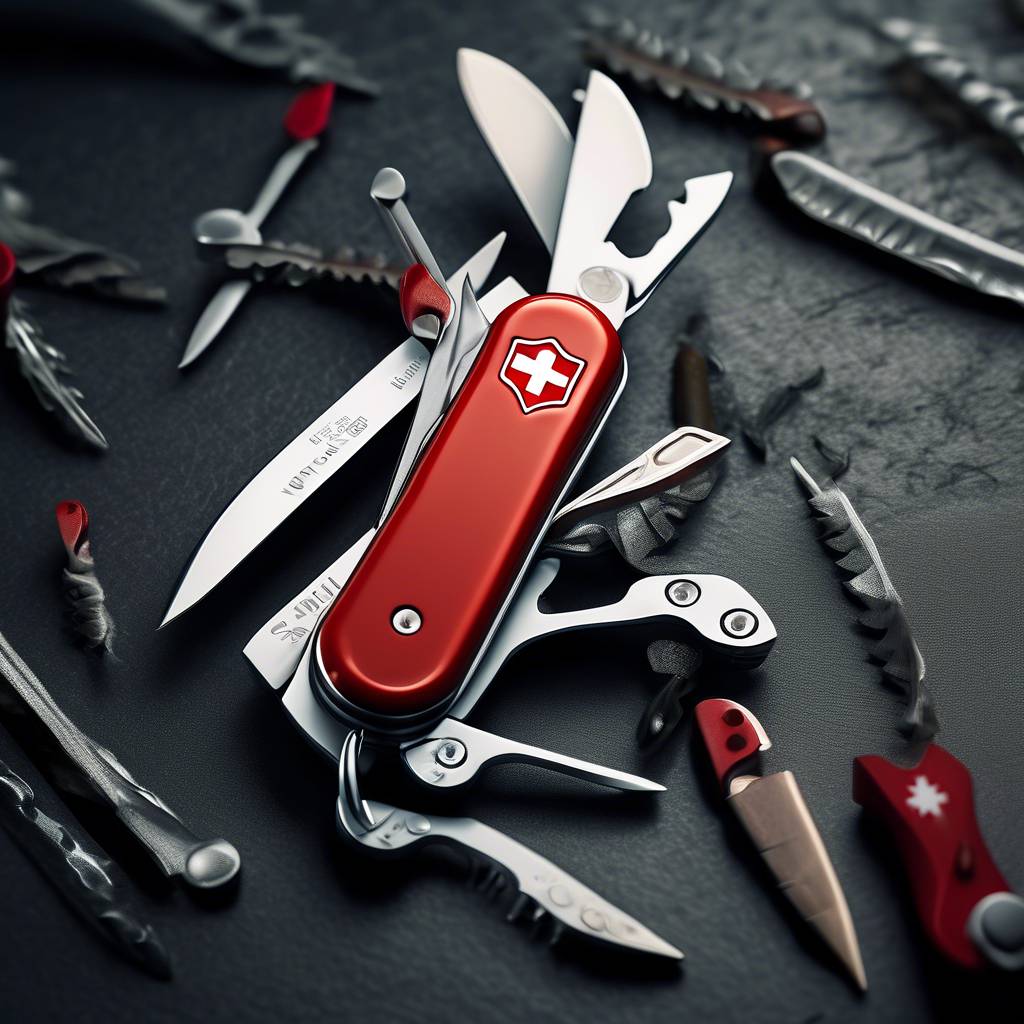Victorinox, the manufacturer of the classic Swiss Army Knife, is developing a new model that will be bladeless in response to increasing regulatory barriers surrounding knives. CEO Carl Elsener expressed concern about the global rise in knife regulations due to violence, prompting the company to create pocket tools without blades. Elsener mentioned a specific tool in development for cyclists, emphasizing that the new versions will complement rather than replace the traditional Swiss Army Knives.
Many countries have restricted the carrying of pocket knives or blades unless needed for work or outdoor activities, leading to the need for bladeless alternatives. In the U.K. and certain Asian countries, carrying knives is only permitted under specific circumstances, such as for work or outdoor use. Following the terrorist attacks of September 11, 2001, knife regulations became more stringent, causing a significant drop in pocketknife sales for Victorinox.
The company’s history dates back to 1884 when Karl Elsener founded it and started producing the original Swiss Army Knife in 1897. In 2005, Victorinox acquired Wenger, a competitor known for its Swiss Army Knife, and has since expanded its focus on watches and travel gear. The evolution of the brand reflects its ability to adapt to changing market demands while remaining true to its iconic product.
The Swiss Army Knife brand celebrated its 125th anniversary amidst discussions about its future in light of increasing knife regulations worldwide. CEO Carl Elsener highlighted the need for innovation in response to changing market dynamics, focusing on the development of bladeless pocket tools to address regulatory challenges. These new tools are designed to cater to specific needs, such as cyclists or golfers, without the perceived weapon image associated with blades.
Elsener emphasized the importance of diversification in business operations following the impact of 9/11 on pocketknife sales. The company’s response to evolving regulations demonstrates its commitment to staying ahead of the curve and adapting to new market conditions. While the classic Swiss Army Knife remains a core product, the introduction of bladeless tools reflects Victorinox’s ability to innovate and meet consumer needs in a changing world.
In conclusion, Victorinox’s decision to create bladeless pocket tools in response to increasing knife regulations underscores the company’s commitment to adapting to market challenges. The brand’s rich history and legacy as a pioneer in multitool innovation position it well for continued success in the face of changing regulatory landscapes. As the company continues to evolve and diversify its product offerings, it remains a symbol of Swiss craftsmanship and innovation in the global market.









